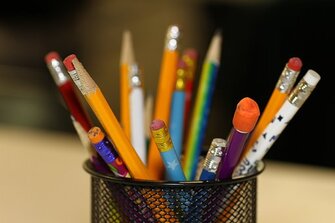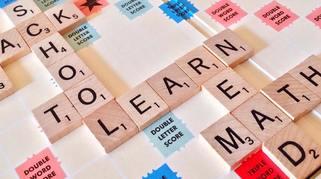We dig deeper than the surface
#discovery #investigation #knowledge
Rigorous study of AP/IB Literature & Composition IV, TOK, and English IV
Course Objectives
In any of my English courses, students will:
- Learn to enjoy and appreciate analytical reading and purposeful writing.
- Demonstrate an understanding of grammar, mechanics and usage to write well-developed content.
- Generate new vocabulary words in the proper context.
- Analyze societal and ethical issues, problems and values through the critique of literature.
- Evaluate various writings and literary forms in order to examine human experiences and connect them to global issues.
- Spiral technology as a learning tool to enhance research skills.
- Develop discussion skills that will help students think, speak, listen and write better.
- Synthesize and apply the techniques of both creative and critical thinking skills to generate new ideas, overcome roadblocks, develop innovative solutions and solve problems.
Supplies
All students are expected to be prepared and organized for class. To help in this endeavor, you are required to keep an interactive notebook and the list of mandatory supplies below for the course.

- Required Readings (supplied by your teacher)
- 2 Composition Notebooks (I do not accept spirals, binders or loose-leaf paper)
- 10 #2 pencils (NO PENS. Period. I will supply pens when we edit.)
- 1 Gmail Address
- 1 Google Drive Account
At-a-Glance
Please write these codes down in the resources section of your Interactive Notebook. That way, you will always be able to find them. Write down usernames and hints of your passwords, and set due dates in your phone.
Know These, Get Connected, Write Them Down
www.englishfury.com
[email protected]
IG: @brownteensread
Twitter: @brownteensread
Facebook: /brownteensread
Remind
To get started:
Flipgrid
To get started:
Mixed Ink
To get started:
Interactive Notebook
Google Classroom
Know These, Get Connected, Write Them Down
www.englishfury.com
[email protected]
IG: @brownteensread
Twitter: @brownteensread
Facebook: /brownteensread
Remind
To get started:
- Get the Code.
- Get connected.
- Start receiving messages, alerts and reminders!
Flipgrid
To get started:
- Get the Code.
- Get connected.
- Start participating in class discussions!
Mixed Ink
To get started:
- Visit Mixed Ink.
- Read and respond to the prompt.
- Be a part of the conversation! Reply to a classmate.
- Due weekly.
Interactive Notebook
- Get your two composition notebooks.
- Click here to assemble them as an Interactive Notebook.
Google Classroom
- Go to classroom.google.com.
- Click the + to join a class.
- Get the Code.
- Start learning!
Course Overview
Writing Requirements

Every Wednesday, you will write. The occasion? Writing Wednesday. You will either learn and apply a new writing strategy, or you will write, bell to bell.
You will write a minimum of three major essays each six weeks. All writing assignments will be timed and scored according to the IB, AP or English IV writing rubrics, which will express the central guidelines/goals of the activity. You should use it as a guide to focus the majority of your energy. All rubrics will include elements about the strength of writing, so for this reason, you should constantly seek to identify and improve your own structural and grammatical weaknesses.
Many of your writings will be completed in your Interactive Notebook, which will be left each day in a designated bin in the classroom. This makes it easier for me to conduct notebook checks and easier for you to keep up with your notebook.
Essays that you receive back after grading will have notations made on them to help guide you toward fixing problem areas. You are encouraged to revise and resubmit essays. As an absolute minimum, you are expected to review these comments and use them as an additional strategy to improve language, structure and rhetorical skills. As the tasks become more complex and the expectations more demanding, students who fail to self-reflect during the course suffer academically.
You will write a minimum of three major essays each six weeks. All writing assignments will be timed and scored according to the IB, AP or English IV writing rubrics, which will express the central guidelines/goals of the activity. You should use it as a guide to focus the majority of your energy. All rubrics will include elements about the strength of writing, so for this reason, you should constantly seek to identify and improve your own structural and grammatical weaknesses.
Many of your writings will be completed in your Interactive Notebook, which will be left each day in a designated bin in the classroom. This makes it easier for me to conduct notebook checks and easier for you to keep up with your notebook.
Essays that you receive back after grading will have notations made on them to help guide you toward fixing problem areas. You are encouraged to revise and resubmit essays. As an absolute minimum, you are expected to review these comments and use them as an additional strategy to improve language, structure and rhetorical skills. As the tasks become more complex and the expectations more demanding, students who fail to self-reflect during the course suffer academically.
Reading Requirements

This is an English class. Therefore, we will READ throughout the course of the year. Novels, short stories, poems, song lyrics, articles, ads, texts, tweets, posts, etc., will all be required readings. To that end, you will be required to get your own copies of novels for class use. Physical copies are recommended. At this time, I will not accept digital copies. You will be graded on annotating and color marking the texts. Therefore, until you learn how to annotate and color mark effectively, e-books are unacceptable. Titles are provided on your Course Outline so that you can budget your purchases of the books.
AP/IB Exam Requirements

The expectation is that every student in an AP and IB course take the AP and IB exams, respectively, in May. The exam dates will be posted later in the year, so please check this Website often and be prepared to mark these dates on your calendar. You may also be expected to pay a fee for your exams.
Saturday Study Sessions

As a courtesy, study sessions are scheduled throughout the late fall and spring leading up to exam season. You will participate in rigorous training that can help you be successful on the exam and earn college credit. All English Literature and Composition students are required be in attendance if you are testing.
Online/Recurring Assignments

Online assignments prepare you for taking virtual classes in college and/or writing professionally online. Because the Internet makes getting your work done accessible and convenient, you are not excused from completing assignments if you are absent or at DAEP.
Also, since the deadlines are generous, the following assignments cannot be made up.
Also, since the deadlines are generous, the following assignments cannot be made up.
- Membean. Membean is an online vocabulary builder. You must log on using your email and password and "train" for 15 minutes at least three times each week, for a total of 45 minutes.
- Mixed Ink. Each week, I post a prompt that you will have a week to respond to. These posts can help you become socially responsible, form a worldview, know what's going on in the world around you, improve your critical thinking skills and/or enhance your creativity and ability to articulate your thoughts in writing.
Fine Print
Class Norms, Codes of Conduct, Consequences, Policies, etc.
Class Norms and Codes of Conduct
Class Norms for English Fury
1) Respect yourself, teacher, classmates, their property, the school and your upbringing.
2) Always pay attention and follow directions.
3) Always come to class prepared with your supplies and required readings.
4) Do not prevent me from teaching or others from learning.
5) Be safe and keep our room clean.
6) No personal grooming or food/drinks in class.
7) Do not venture behind my desk or bother my things unless you have permission.
1) Respect yourself, teacher, classmates, their property, the school and your upbringing.
2) Always pay attention and follow directions.
3) Always come to class prepared with your supplies and required readings.
4) Do not prevent me from teaching or others from learning.
5) Be safe and keep our room clean.
6) No personal grooming or food/drinks in class.
7) Do not venture behind my desk or bother my things unless you have permission.
Class Rules Defined
- Respect yourself, teacher, classmates, their property, the school, your upbringing.
- Do not behave in an uncouth manner.
- Do not bully, threaten, bash others verbally or make fun of anyone different than you.
- Do not touch anything that does not belong to you.
- Do not take anything that does not belong to you.
- Do not write on the desk, floor or walls.
- Always pay attention and follow directions.
- Do not allow yourself to be distracted by hallway disruptions, your phone or others.
- Do what is asked of you by me, even if you doubt the validity.
- I do not allow restroom or water fountain breaks/passes. Go before or after.
- Always come to class prepared with your supplies and required readings.
- Bring your Interactive Notebook daily.
- Bring your text for reading daily.
- Bring a supply of pencils daily.
- Stand your Interactive Notebooks upright inside the holding crates.
- Do NOT throw your Interactive Notebook inside the crate.
- For any class whose notebooks are disheveled, 5 points will be deducted from the entire class.
- DO NOT prevent me from teaching.
- When I talk, you write. When I write, you write. Do not speak while I am teaching.
- If someone is speaking, raise your hand if you wish to speak, and wait to be called upon.
- Do not interrupt when I am one-to-one with another student.
- DO NOT prevent others from learning.
- Do not behave in a disruptive or distracting way.
- Do not engage in lengthy off-topic conversations.
- Keep the volume of your voice down.
- No singing, rapping, or other disruptive noises.
- Be safe.
- Do not throw, toss, flick, or roll anything across the table, floor or classroom.
- Use classroom materials in a safe manner.
- Do not behave in any way that threatens harm to yourself, anyone, or the school.
- Keep things clean.
- Clean up after yourself so your desk is ready for the next student.
- Return classroom materials to the proper storage place if used.
- Do not eat or drink messy things that can leave residue on the desks or laptops.
- Keep your language clean. NO CURSING!!!
- No personal grooming or food in class.
- Males and females, do not comb your hair in class. Do not fiddle with your twists, braids, locs, hair, etc. Your breakage, even from weave, gets on the desks and floor and makes for an unsanitary environment.
- You are allowed to have drinks as long as the containers have lids, or the tops are somehow closed/enclosed.
- DO NOT venture behind my desk or bother my things without permission.
- Do not touch or take any decorative items around the room.
- Absolutely DO NOT go behind my desk for any reason unless instructed to do so.
- Do not open or go in my desk for any reason unless instructed to do so.
No Distractions Discipline Plan
In the event that you MAKE THE CHOICE to break the rules, here are your consequences:
1.) Verbal warning with note, email or call to parent/guardian
2.) Student/Teacher Conference with note, email or call to parent/guardian
3.) Written referral and administrator contact
1.) Verbal warning with note, email or call to parent/guardian
2.) Student/Teacher Conference with note, email or call to parent/guardian
3.) Written referral and administrator contact
Student Dress Code
See your Student Handbook and Student Code of Conduct.
Attendance Policy
Students must attend class. If a student accumulates too many absences (excused and unexcused), district policy, and state law, mandate that credit be denied. There will be no flexibility on this point. It is the student’s responsibility to check the attendance reports generated in the attendance office, and notify me of any errors prior to the end of the six weeks. Failure to check this will result in the error remaining on the attendance report.
For more information, see your Student Handbook and Student Code of Conduct.
For more information, see your Student Handbook and Student Code of Conduct.
E-mail and Phone Communication
If you or your parents e-mail, text or call and leave a voicemail, I will respond within 24 to 48 school hours. My email address is [email protected], you can text me on Remind or call the school.
Cell Phone/Device Usage in Class
As investors of 21st-century learning, our district encourages teachers to use technology in order to prepare our students to be competitive in the 21st-century job market. It is imperative today that students know and understand how to use technology for academic and professional purposes.
In order to meet my students where they are as a generation, follow the demands of a global society, and follow the technology standards of our district, the district makes laptops/chromebooks accessible to students to do online work, in the event that they do not own or have access to technology. If you are home and need technology, all libraries have computer access, and most stores, restaurants and cafes have free Wifi and/or workstations available.
To this end, I effectively incorporate technology into learning wherever opportunities exist for educational purposes only. If you visit non-authorized Web sites, send personal texts and video messages, or are on your devices excessively for personal reasons, your technology will be confiscated until the end of the school day. If you refuse to turn it over, you will receive a zero for the day, a referral will be written, and your parent(s)/legal guardian(s) will be notified.
Charging Station: Come to class prepared, but if you need to charge your phones, tablets or e-readers, you are allowed to do so in the charging station only.
In order to meet my students where they are as a generation, follow the demands of a global society, and follow the technology standards of our district, the district makes laptops/chromebooks accessible to students to do online work, in the event that they do not own or have access to technology. If you are home and need technology, all libraries have computer access, and most stores, restaurants and cafes have free Wifi and/or workstations available.
To this end, I effectively incorporate technology into learning wherever opportunities exist for educational purposes only. If you visit non-authorized Web sites, send personal texts and video messages, or are on your devices excessively for personal reasons, your technology will be confiscated until the end of the school day. If you refuse to turn it over, you will receive a zero for the day, a referral will be written, and your parent(s)/legal guardian(s) will be notified.
Charging Station: Come to class prepared, but if you need to charge your phones, tablets or e-readers, you are allowed to do so in the charging station only.
Grading
Each grading period will include a minimum of three grades from the following:
Major Grades (40%): Tests, essays, projects, presentations
Daily Grades (40%): In-/Out-of-class reading, quizzes, journals, writings, class participation
Homework (20%): Out-of-class assignments
**You can access your grades any time by visiting the Home Access - Parent Self-Serve portal on our district's website.**
Major Grades (40%): Tests, essays, projects, presentations
Daily Grades (40%): In-/Out-of-class reading, quizzes, journals, writings, class participation
Homework (20%): Out-of-class assignments
**You can access your grades any time by visiting the Home Access - Parent Self-Serve portal on our district's website.**
Tutoring
Tuesday/Thursday
After school.
Please Note: Tutoring sessions are for students who are struggling academically and failing as a result; who received a low grade on an assignment and want to bring it up; or who are struggling with an assignment before it is due and want to come in and get clarification.
Tutoring is not for students who are failing as a result of never having submitted an assignment and want to come in and make it up. My assignment deadlines are generous, so I do not offer extra credit, make-up work, or accept late assignments unless the circumstances are extenuating, or if you have an excused absence, all of which is stated below in this syllabus and determined on a case-by-case basis. Policies on making up work is also outlined in the Student Handbook.
All tutoring sessions are by appointment only and offered after school. Click here to sign-up.
After school.
Please Note: Tutoring sessions are for students who are struggling academically and failing as a result; who received a low grade on an assignment and want to bring it up; or who are struggling with an assignment before it is due and want to come in and get clarification.
Tutoring is not for students who are failing as a result of never having submitted an assignment and want to come in and make it up. My assignment deadlines are generous, so I do not offer extra credit, make-up work, or accept late assignments unless the circumstances are extenuating, or if you have an excused absence, all of which is stated below in this syllabus and determined on a case-by-case basis. Policies on making up work is also outlined in the Student Handbook.
All tutoring sessions are by appointment only and offered after school. Click here to sign-up.
Academic Language
Although colloquial language is the standard practice, you will be challenged to speak and write academically as often as possible. Your ability to apply relevant vocabulary during your oral participation and written presentation, will be rewarded in your daily participation grades.
Extra Credit
I do not give extra credit work. My deadlines are generous and most of our work is completed in class or does not take more than an hour to complete for homework. Therefore, if you do your required work, you will not need extra credit work.
Absences
- Make Up Work. I post all homework assignments on this Web site. Therefore, if you are absent, and your absence is excused, it is your responsibility to check our class Website (English Fury) to see if you had homework or classwork, then turn in any work missed within three (3) days of your return. This is the 21st century. Excuses will not be accepted. For class work that you miss during your excused absence, it is mandatory for you to see me the day that you return from an excused absence to receive, be shown or given any make up work for class work you missed. You will have three (3) days to complete it.
- Make Up Tests. If you are absent on the day of a test or quiz that you were privy to, you will be expected to take it beforehand or the day of your return if your absence is excused. No exceptions. You will only have three (3) days to make up any tests that you miss during an excused absence. You will not be able to make up tests if your absence is unexcused.
- In My Absence. Whenever I am out, class work will be posted under the tab, "My Teacher Is Missing" with instructions and deadline requirements. I also follow up and send notices and alerts on Remind.com.
- Deadlines/Due Dates: Please note that all work is required to be turned in on its original due date if you are present the day the work is assigned. You will not receive extra time to complete the assignment due to an absence on a due date, unless it is excused. Either turn it in beforehand, or email it on the due date. I will not accept it late upon your return.
- In-School Suspension (ISS): Carry your literary text with you at all times. If you have to spend time in ISS, make sure you read the current text we're reading and complete your online assignments. These assignments are online and do not interfere with the lack of your presence in class.
- Disciplinary Alternative Education Program (DAEP): If you have the unfortunate privilege to attend alternative school, you will still be required to complete your online assignments and reading each week.
Transfer Students
If you enroll in my class any time after the first day of school, it is your responsibility to make sure that you schedule time with me to catch up on any work that has been given, especially exams. You will be given time to study and prepare for the assignments and exams, but it is your responsibility to find out what you need to catch up on. You will not be exempt unless there is a special circumstance, which will be determined on a case-by-case basis.
Late Assignments
Unless I have approved an extension in advance due to dire circumstances, I do not accept late assignments. Please see Deadlines/Due Dates above.
Amnesty Assignments
Occasionally, I extend an amnesty assignment to students with dire circumstances. This is not a privilege extended to students who simply do not complete assignments, do not turn in assignments, fail assignments, walk out of class, be pulled from class for extra curricular activities, are absent for fine arts or athletic activities, etc. Requests from you, administrators, coaches, parents or other teachers hold no bearing on my decision to or not to grant you an amnesty opportunity. Your failing grade will be assessed on a case-by-case basis.
Grade Inquiries
I will not grant requests nor will I acknowledge requests to meet and discuss your grades over the phone, email, in person or on social media when the grading window has closed, which for my class, is one week before grades are due. If you are not doing your work or checking on your grades up to that point, there is nothing you can do, unless you have a dire or an unusual circumstance. You cannot make up three to six weeks worth of work in a matter of days with fidelity. For the sake of best practices, I do try to input grades in a timely manner, usually weekly, unless there is a mitigating circumstance. Consequently, I may get behind, but know that I am keeping track of all work assigned. In that case, if you turn in all your work assigned, when assigned, it will not matter when I put them in my grade book, you will be covered.
Also, on week long assignments that you have, that you did not meet, you will not, under most circumstances, be allowed to make those grades up at all. The deadlines are generous.
Let's talk about zeros for work you turned in. If you are absent on a day that an assignment is due, I will mark a zero in the grade book. I do this as an alert to you and myself that something needs to be taken care of. So if you see that, and know that you were absent from class, all you need to do is submit the work and the grade will be changed to reflect accordingly.
Develop good responsibility and accountability habits now. I do not coddle, sympathize or quaver in my expectations and standards for you as a student. It may be a good idea to read this article: Dear Student: No, I Won't Change the Grade You Deserve.
Also, on week long assignments that you have, that you did not meet, you will not, under most circumstances, be allowed to make those grades up at all. The deadlines are generous.
Let's talk about zeros for work you turned in. If you are absent on a day that an assignment is due, I will mark a zero in the grade book. I do this as an alert to you and myself that something needs to be taken care of. So if you see that, and know that you were absent from class, all you need to do is submit the work and the grade will be changed to reflect accordingly.
Develop good responsibility and accountability habits now. I do not coddle, sympathize or quaver in my expectations and standards for you as a student. It may be a good idea to read this article: Dear Student: No, I Won't Change the Grade You Deserve.
Headings
Writing your name, date and class period at the top of each assignment on the right hand side is REQUIRED on all assignments, including in your Interactive Notebook. This is an indication that you did the work on time and keeps you organized chronologically. It also proves you did your work in case the sheet is somehow removed from the notebook. More egregiously, it saves me time because taking one to two minutes for 125 students takes a little over four additional hours out of MY time.
To that end, I will not look for your work. If your heading is not in the correct place, or posted incorrectly, I will not grade your paper. Period. ...which will result in a zero for that assignment.
To that end, I will not look for your work. If your heading is not in the correct place, or posted incorrectly, I will not grade your paper. Period. ...which will result in a zero for that assignment.
Social Media
We will utilize social media in our class. However, any inappropriateness will not be tolerated. For a list of our networks, visit: Social Media.
Teaching Methods
- Direct teaching/modeling
- Cooperative Learning
- Discussions/Debates
- Note-taking and graphic organizers
- Differentiated Instruction
- Socratic Seminars
- Analytical Reading, Annotating and Writing
- Reflective Journaling
- Make connections between fiction/nonfiction/film/music/visual art and other media forms
Assessment Methods
Internal Assessments
- Essays/Timed-writings
- Oral presentations
- Reading Aloud
- Annotating
- Writing
- Formative Assessments (includes technology)
- Presentations
- Essays
- Short Answer Responses
- Text-response questions
- Multiple-choice questions – though these are rarely used
Ongoing Assignments
- Essays/Timed-writings
- Interactive Notebook
- Vocabulary Builder
- Weekly Blogging
- Daily Writing
- Analytical Reading, Annotating and Writing
Academic Honesty Policy
Principled students act with integrity and honesty, with a strong sense of fairness, justice and respect for the dignity of the individual, groups and communities. They take responsibility for their own actions and the consequences that accompany them. ~IB Learner Profile
Our Advanced Academics Programs require all work presented to be the students’ original work. Malpractice is recognized across the world as a serious academic offense and is unacceptable at this school. Ignorance of malpractice is not a valid excuse and any student suspected of malpractice will be investigated by the teacher, Coordinator, the IBO or College Board.
Definition
Academic Honesty is considered in the broadest sense as the production of academic material without cheating, lying, stealing or the inappropriate help of others (collusion) or using any source of information not appropriately attributed (plagiarism).
The International Baccalaureate Organization (IBO) and College Board stresses the importance of academic honesty. Academic honesty means that one’s own work is authentic and not a reproduction of other people’s work or ideas. This school, the IB and College Board define plagiarism, collusion, duplication and falsification in the following ways:
Malpractice
At this school, students strive to embody the characteristics described in the IB Learner Profile and College Board standards. Because of this, the school has built its academic honesty policy around those attributes. In particular, we encourage our students to be:
We believe that all students should:
We believe that all teachers should:
Consequences of Academic Malpractice
The Coordinator must inform the IBO or College Board if he/she suspects any malpractice in relation to a student's work after the work or an internal assessment mark has been submitted to College Board or the IBO, respectively. In such cases, or when an examiner suspects malpractice, the school will be required to conduct an investigation and provide the IBO or College Board with relevant documentation concerning the case. If malpractice is suspected, the teacher has reason to believe that academic dishonesty has occurred, or the IB or College Board suspects malpractice, the following steps will be taken:
1. The teacher will communicate the outcome of his/her investigation to the Coordinator.
2. The student will receive no credit for the assignment in question and will be invited, through the Coordinator, to present a written explanation or defense. Then, disciplinary consequence will be enacted by the Coordinator.
3. Consequences for academic malpractice range from the student earning a zero on the work involved to immediate dismissal from the Advanced Academic Program, depending on the severity of the infraction.
4. After reviewing all evidence collected during the investigation, the Coordinator will decide whether to dismiss the allegation, uphold it, or ask for further investigation to be made. If the Coordinator deems evidence of malpractice insufficient, the allegation will be dismissed and a grade will be awarded in the normal way.
5. If the Coordinator decides that a case of malpractice has been established, no grade will be awarded in the subject(s) concerned. No credits will be awarded to the student in that subject, but credit will be awarded for other subject(s) in which no malpractice has occurred.
6. The Coordinator will communicate, in writing, disciplinary consequences to the student and his/her parents. This letter will be placed in the student’s file in the coordinator’s office but will not become a part of the student’s permanent academic record.
Note: If a student enters any of our Advanced Academics Programs with a record of malpractice from other courses, that record constitutes the student’s first incident of academic malpractice.
7. If a student is allowed to remain in the Advanced Academics Program following a first incident of academic malpractice, a second incident of any type, on any assignment, at any time during the student’s enrollment in the Program, will result in the student’s dismissal from the Advanced Academics Programs and/or the school in general.
If a student is discovered doing any of the aforementioned, he/she will receive a zero for that assignment/activity/presentation and six weeks. Also, if a student is caught knowingly plagiarizing, parents will be contacted, and coaches and potential colleges will be notified, and disciplinary action will ensue. As your teacher, I reserve the right to notify parents of any academic dishonesty as warranted.
As a student in your class, I understand that the consequences for committing any of the previous acts of academic dishonesty can include a failing grade for the assignment or quiz with no opportunity for make-up and/or failure in the class as a whole. I understand that the purpose of this course is to help me develop skills necessary for college and a career.
Our Advanced Academics Programs require all work presented to be the students’ original work. Malpractice is recognized across the world as a serious academic offense and is unacceptable at this school. Ignorance of malpractice is not a valid excuse and any student suspected of malpractice will be investigated by the teacher, Coordinator, the IBO or College Board.
Definition
Academic Honesty is considered in the broadest sense as the production of academic material without cheating, lying, stealing or the inappropriate help of others (collusion) or using any source of information not appropriately attributed (plagiarism).
The International Baccalaureate Organization (IBO) and College Board stresses the importance of academic honesty. Academic honesty means that one’s own work is authentic and not a reproduction of other people’s work or ideas. This school, the IB and College Board define plagiarism, collusion, duplication and falsification in the following ways:
- Plagiarism: representing ideas or work of another person as one’s own.
- Collusion: allowing one’s work to be copied or submitted by another and/or releasing information about an assessment to another person.
- Duplication: presenting the same work in different assessments.
- Falsification: purchasing and/or submitting pieces of written work by someone else, misrepresenting actions, parent signature.
Malpractice
At this school, students strive to embody the characteristics described in the IB Learner Profile and College Board standards. Because of this, the school has built its academic honesty policy around those attributes. In particular, we encourage our students to be:
- Principled – by acting with honesty, integrity and responsibility.
- Inquirers – by asking questions and developing the skills needed to conduct research.
- Communicators – by writing and speaking to inform others and crediting their sources properly.
We believe that all students should:
- Be honest in their school work and in all public interactions.
- Not cheat.
- Not allow others to copy their work.
- Use research conventions to cite and clearly mark other people's ideas and words within my paper.
- Understand that plagiarism, collusion, duplication, falsification is an act of intellectual dishonesty.
- Use a method to cite or give credit when they use ideas and words that are not their own.
We believe that all teachers should:
- Model academic honesty.
- Provide clear guidelines and expectations for student work.
- Scaffold citing and giving credit to others' for their ideas in all content areas.
- Treat minor breaches of the academic honesty policy as “teachable moments” to support student ethical development.
Consequences of Academic Malpractice
The Coordinator must inform the IBO or College Board if he/she suspects any malpractice in relation to a student's work after the work or an internal assessment mark has been submitted to College Board or the IBO, respectively. In such cases, or when an examiner suspects malpractice, the school will be required to conduct an investigation and provide the IBO or College Board with relevant documentation concerning the case. If malpractice is suspected, the teacher has reason to believe that academic dishonesty has occurred, or the IB or College Board suspects malpractice, the following steps will be taken:
1. The teacher will communicate the outcome of his/her investigation to the Coordinator.
2. The student will receive no credit for the assignment in question and will be invited, through the Coordinator, to present a written explanation or defense. Then, disciplinary consequence will be enacted by the Coordinator.
3. Consequences for academic malpractice range from the student earning a zero on the work involved to immediate dismissal from the Advanced Academic Program, depending on the severity of the infraction.
4. After reviewing all evidence collected during the investigation, the Coordinator will decide whether to dismiss the allegation, uphold it, or ask for further investigation to be made. If the Coordinator deems evidence of malpractice insufficient, the allegation will be dismissed and a grade will be awarded in the normal way.
5. If the Coordinator decides that a case of malpractice has been established, no grade will be awarded in the subject(s) concerned. No credits will be awarded to the student in that subject, but credit will be awarded for other subject(s) in which no malpractice has occurred.
6. The Coordinator will communicate, in writing, disciplinary consequences to the student and his/her parents. This letter will be placed in the student’s file in the coordinator’s office but will not become a part of the student’s permanent academic record.
Note: If a student enters any of our Advanced Academics Programs with a record of malpractice from other courses, that record constitutes the student’s first incident of academic malpractice.
7. If a student is allowed to remain in the Advanced Academics Program following a first incident of academic malpractice, a second incident of any type, on any assignment, at any time during the student’s enrollment in the Program, will result in the student’s dismissal from the Advanced Academics Programs and/or the school in general.
If a student is discovered doing any of the aforementioned, he/she will receive a zero for that assignment/activity/presentation and six weeks. Also, if a student is caught knowingly plagiarizing, parents will be contacted, and coaches and potential colleges will be notified, and disciplinary action will ensue. As your teacher, I reserve the right to notify parents of any academic dishonesty as warranted.
As a student in your class, I understand that the consequences for committing any of the previous acts of academic dishonesty can include a failing grade for the assignment or quiz with no opportunity for make-up and/or failure in the class as a whole. I understand that the purpose of this course is to help me develop skills necessary for college and a career.
Final Note to Students and Parents
Please make sure that you familiarize yourself with this syllabus and the rest of this Web site, especially your individual course syllabus.
To verify your acknowledgement of this syllabus and to get a grade for it, please complete the Acknowledgement and Agreement below by entering your contact information and the phrase: “I have read the syllabus and Academic Honesty Policy. I understand the goals and expectations of this course, my classroom and academic integrity. By completing this form, I am agreeing with and will adhere to the rules, processes, procedures, norms and expectations of our class, school and district as outlined above.”
To verify your acknowledgement of this syllabus and to get a grade for it, please complete the Acknowledgement and Agreement below by entering your contact information and the phrase: “I have read the syllabus and Academic Honesty Policy. I understand the goals and expectations of this course, my classroom and academic integrity. By completing this form, I am agreeing with and will adhere to the rules, processes, procedures, norms and expectations of our class, school and district as outlined above.”
Problems sending this form? Technical issues? [email protected]
